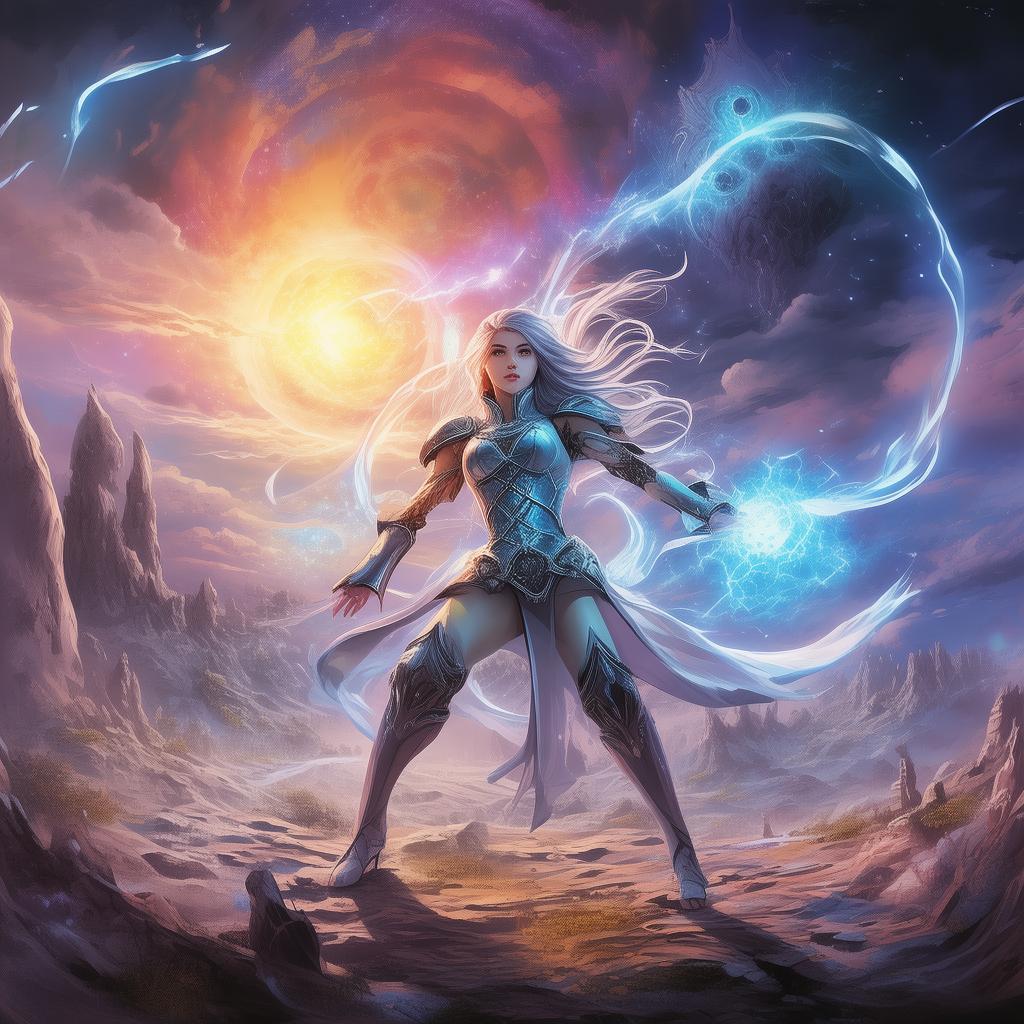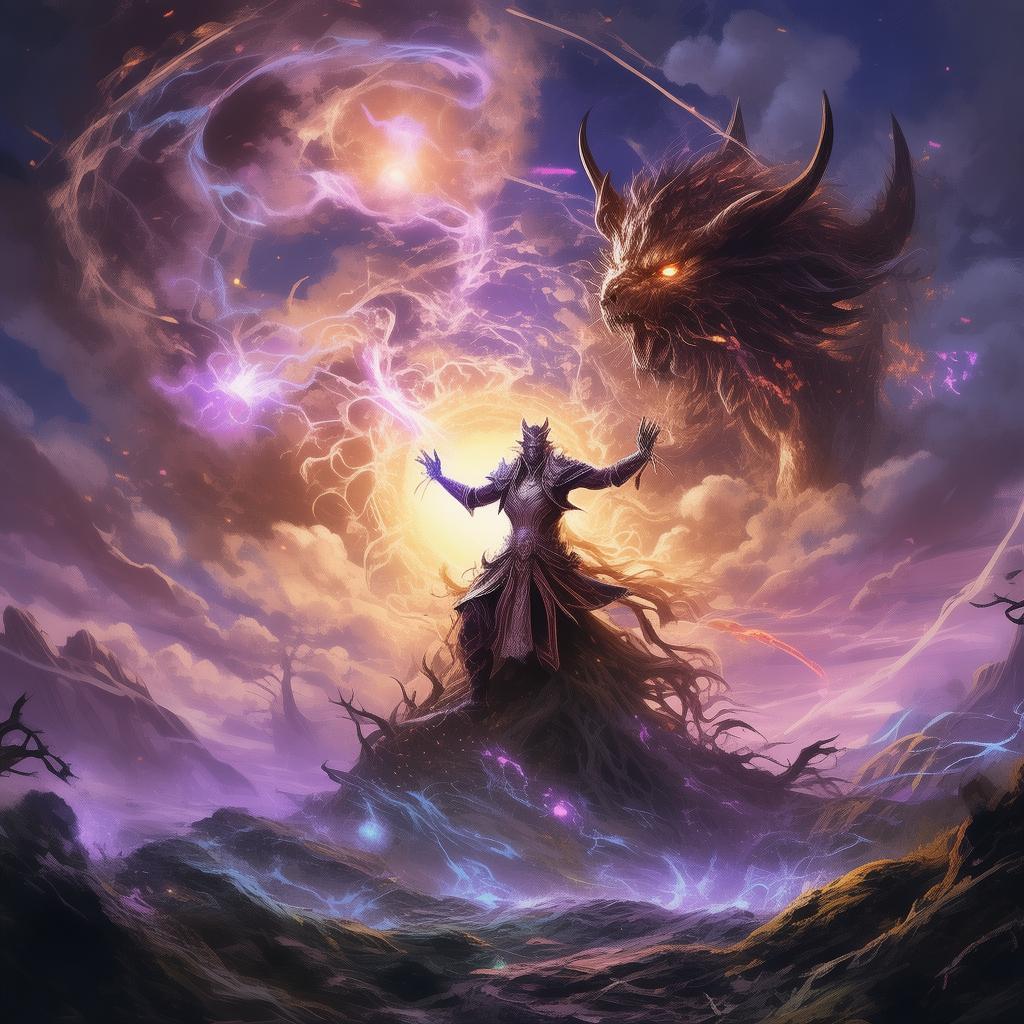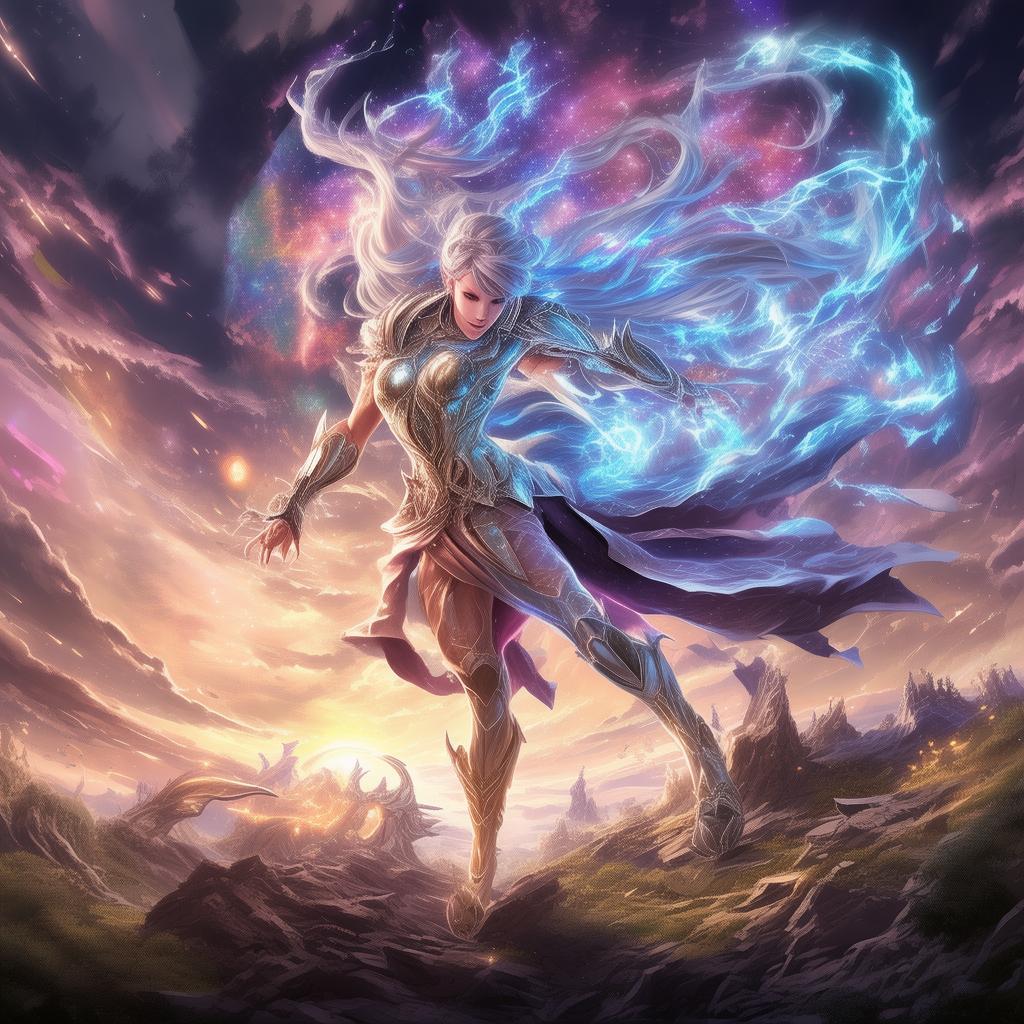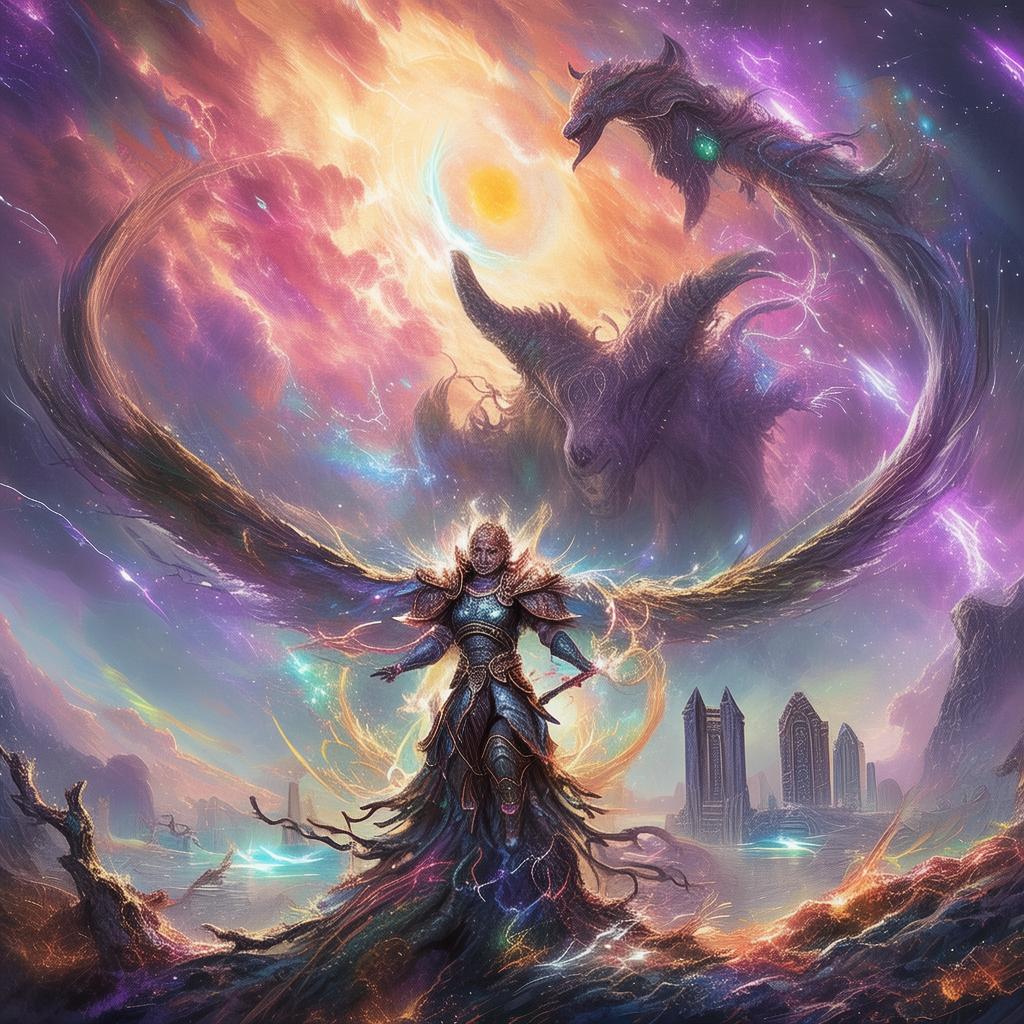The Emperor's Second Act: The Celestial Renaissance
In the heart of the ancient continent of Elysium, where the sky was painted with the hues of twilight and the ground thrummed with the energy of the celestial realms, there stood the grand citadel of the Emperor. It was here, in the heart of the imperial palace, that the young heir, Liang Feng, found himself at the precipice of a destiny that had been foretold in the ancient scrolls of the empire.
Liang Feng was not an ordinary heir; he was the chosen one, destined to wield the power of the celestial dragon, a power that had once been the mightiest in all the land. However, the celestial dragon's spirit had been dormant for centuries, its flames smothered by the weight of the empire's decline and the corruption that had seeped into its very core.
The Emperor, a figure of majestic presence and ancient wisdom, had grown old and weary. His voice, once a resounding thunder that could shake the heavens, had become a whisper, barely audible to the ears of his people. The celestial powers that once allowed him to command the skies and the stars had waned, leaving the empire vulnerable to the encroaching darkness that sought to consume it.
As the Emperor's health waned, his second act began to unfold. It was a tale of redemption, of a son rising to take his place in the celestial hierarchy, and of a renaissance that would either restore the empire to its former glory or plunge it into an eternal night.
The Celestial Renaissance was not a story of a single hero; it was a tapestry of lives entwined by fate and magic. Among the characters were the cunning and ambitious Grand Minister, who sought to seize power through treachery and deceit; the valiant General, whose heart was as brave as his sword; and the mysterious Oracle, whose prophecies were riddles wrapped in enigmas.
Liang Feng, the young heir, was a man of few words and many secrets. He had grown up in the shadow of the Emperor's might, learning the ways of the celestial arts and the politics of the empire. But his true power lay hidden within him, a power that could either save or destroy the world.
The story begins with a crisis of faith. The Emperor, in his weakened state, is given a vision by the Oracle: the celestial dragon's spirit can be awakened only through the blood of a pure-hearted heir, one who has never known deceit or corruption. The Oracle's words hang heavy in the air, casting a shadow over Liang Feng and his future.
The Grand Minister, sensing an opportunity to consolidate his power, plants a seed of doubt in the Emperor's mind. He whispers tales of Liang Feng's alleged weakness and indecision, sowing the seeds of distrust. The Emperor, caught in a web of his own making, begins to question his heir's worthiness.
In the midst of this turmoil, Liang Feng is thrust into the fray. He is tasked with embarking on a quest to the forbidden lands, where the celestial dragon's spirit is said to reside. The journey is fraught with peril, as he must navigate a landscape of ancient magic and forgotten secrets.

As Liang Feng travels, he encounters the General, a man whose loyalty is as unwavering as his sword arm. The General has his own reasons for aiding Liang Feng, reasons that will become clear as their paths cross. Together, they face a myriad of challenges, from the treacherous terrain of the forbidden lands to the dark forces that seek to thwart their quest.
The Oracle, a figure of enigmatic presence, appears at critical junctures, offering guidance and warnings. Her prophecies, cryptic and often contradictory, serve as a constant reminder of the complex web of fate that Liang Feng is caught in.
As the journey progresses, Liang Feng begins to uncover the truth behind the empire's decline. He learns of a conspiracy that has been in the works for generations, a conspiracy that threatens not only the empire but the entire cosmos. The Grand Minister, it turns out, is not the only one with ambitions of power.
The climax of the story comes when Liang Feng confronts the Grand Minister in a battle that will determine the fate of the empire. The celestial dragon's spirit awakens within Liang Feng, and he uses its power to vanquish his adversary. But the victory is bittersweet, as the cost of his triumph is the loss of a part of himself.
In the aftermath, Liang Feng returns to the empire, not as a conqueror but as a leader who has learned the true cost of power. He begins the process of healing the empire, restoring its celestial balance, and ensuring that the darkness that once threatened to consume it is banished for good.
The Emperor, who had been on the brink of death, is restored to his former glory, his celestial powers renewed. The empire enters a new age, one of peace and prosperity, guided by the wisdom of the Emperor and the strength of his heir.
The Celestial Renaissance is a tale of transformation, of a son who becomes a leader, and of a world that is reborn from the ashes of its past. It is a story that resonates with the universal themes of power, sacrifice, and the enduring human spirit.
✨ Original Statement ✨
All articles published on this website (including but not limited to text, images, videos, and other content) are original or authorized for reposting and are protected by relevant laws. Without the explicit written permission of this website, no individual or organization may copy, modify, repost, or use the content for commercial purposes.
If you need to quote or cooperate, please contact this site for authorization. We reserve the right to pursue legal responsibility for any unauthorized use.
Hereby declared.









